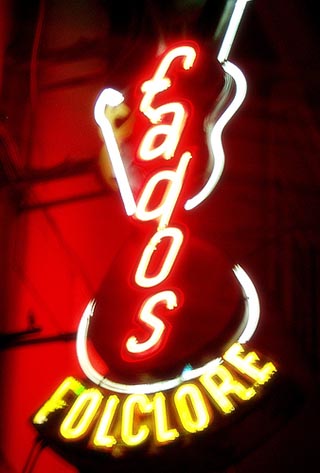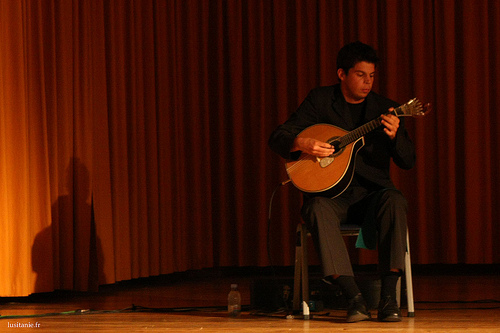Music has been one of the means of exploring the culture, it’s an indivisible part of the nation’s lifestyle and traditions. For example, you will definitely hear a lot of Arabic music in Saudi Arabia, or Flamenco in Spain. Portugal has its own musical signature, and it’s called Fado.
Although the farther you go from cities, the better the quality of traditional music is, Lisbon still offers great places to enjoy Fado. These places are mainly cafes and restaurants. Of course, it would be much thrilling if you could plan your Fado experience before or after your sightseeing. If you can, download some songs and listen to them while viewing the Lisbon attractions.

The music genre is not that ancient, it is only two centuries since Fado has become popular in this country, especially in historical Lisbon, and that’s a really short life for a traditional music. It is said that the music migrated into Portugal along with Brazilians. At its early stage, Fado was considered a peculiarity of the working class, i.e. the poor. Perhaps this is the reason why you can now find great Fado cafes in beautiful Alfama district, a district that existed in poverty for a long time.
The instrument in use is the “guitarra Portuguesa,” which has 12 strings and was imported from Northern Africa. In the 15th century Fado was the combination of music and dance, you won’t see that in Lisbon anymore. The Portuguese added their own touch to it. Today Fado is the duet of the musical instrument, mostly a guitar, and the singer, who is usually female.
The message of Fado is to recall the sad moments of life, or people who have once mattered and are now forgotten, it revokes feelings of regret, disappointment, failed love . . . and whatever sad phenomena left their mark on your character. What a romantic idea for a Portuguese honeymoon!
It’s highly advisable that you give a few Fado songs a try before heading to Lisbon. This way you will know which is the perfect Fado performance, and which is considerably weaker. Amália Rodrigues is definitely one of the best artists to start with. In addition to that, potential Lisbon tourists should check out the music of Esmeralda Amoedo, Silva Carvalho, Dulce Pontes, and so on.

If you don’t want to look for a Fado restaurant yourself, Casa de Linhares, Clube de Fado, Sr. Fado, or Pateo de Alfama will be a choice not to regret.
It’s also not for everyone. If you are more a disco person and like bits and drums and noise, Fado might not impress you. Jazz and blues fans are definitely going to love it, as the genres share common characteristics.
The best place for listening to Fado music is Alfama district. I know I say this too much, but Alfama is the place if you want to get acquainted with the culture of Portuguese people.
The last tip, try to catch the soul of the song when listening it. Fado is not the kind of music you can listen to every day, but when you do, let it embrace your essence and carry it wherever its notes are born.


